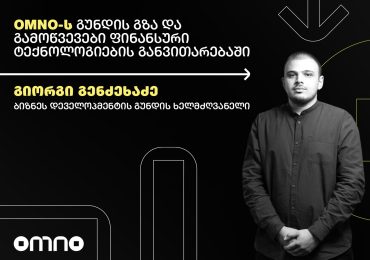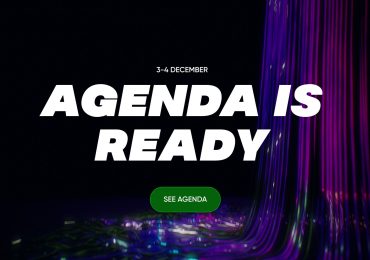Leo has been our most amazing mentor. It is with his support and insight that we developed the Leo Methodology.
One day, he asked me if I knew of this Nietzsche quote: “If your ‘why’ is strong enough, you will overcome whatever ‘how’.”
I said “No, I never heard it, but I like it. It has been my experience, too.”
Before giving me the time to ask him why he asked, he inquired: “Do you buy your employees, or do you inspire them?”
Leo’s questions are often provocative and insight-generating.
“I inspire them, of course!” was my immediate answer.
“Can we explore?” he asked, somewhat mockingly; and I knew then that this was not going to end well for me.
I thought that I was a leader who had vision, openness, and a humane disposition. But when Leo asked me this question, I sensed that there was something I was missing.
He offered: “How do you motivate your employees? Let’s take an example.”
I thought, too: “Yes, let’s take an example, and I will show you!”
I was definitely not one of those stingy leaders that did not reward his employees for the efforts they make. And indeed, they were grateful for that. I remembered many mistakes I made in my younger days, but now I was a much better leader. I was certainly not that stupid leader who didn’t take good care of his team, and didn’t even notice.
“So, Sami, tell me about how you engaged your employees last month,” requested Leo, shook me out of my thoughts. I was very proud of the launch of the new product: our call center had successfully engaged with that.
I shared that with Leo. He wanted to know more. I explained that with a bonus for each product placed by a tele-sales person, the launch had been a great success. While giving him more details, I started becoming scared: Leo’s point might be right, after all.
I started asking myself what would happen if there was no incentive on the sale of each product? Would we have had the same successful launch? Were my employees inspired, or was the money motivating them? Wasn’t I actually buying my employees?
The answer came as a slap on my face: “obviously, Yes!”
What type of competition between colleagues was I promoting? Is this inspiring? The answer was again: “obviously, No!”
When I realized that I was de facto buying my employees, I felt bad. I could see how I had trained them that way. In my mind I was pretty convinced that I was inspiring them…the difference was too subtle!
Without Leo, I would have never found out that I wasn’t inspiring my employees. I never questioned myself to know if I was buying them. Now I had the answer for myself and knew that I had mixed up buying and inspiring.
I decided that I need to learn how to inspire. And I asked Leo to help. Leo agreed, and he said:
“Can you guess what I will ask you first?”
By now, I knew him enough to know what he would ask as a first step, and before he could say anything I said out loud:
“I commit to learn how to inspire my employees instead of buying them.”
He smiled, pleased. I was, too. Learning to inspire my employees has been a very interesting process. I would have never guessed that it would save my company one day, 15 years later.
In 2001, one of my competitors bought over my supplier, and my Company lost 97% of our turnover, overnight. Which business can survive such a blow? To be frank, it seemed impossible. Pushed by some of my staff, I asked myself if Life was proposing to me a great new challenge.
I believe that Life presents us with challenges we are able to face and learn, and surmount. Learning to inspire had been a difficult inner journey for me because it always starts with us. Now Life was bringing it to an altogether new level.
Can inspiration ever come
- from fulfilling the CEO’s ego needs?
- from an untrusting ‘me against you’ environment?
From an untrusting environment certainly not. A safe, trusting, ego-free environment is the indispensable context that allows inspiration. But that is not what creates it.
Let me share some of the elements:
For instance:
- the Goals have to be more important than yourself, and
- they must ‘stretch’ you.
Inspiration comes from the word spirit: neither money can buy it nor can we enforce it. That’s why it is so strong, influential, and powerful.
To be inspired, people need to grow. They need to be able to go towards their Noble Goal, to learn to hear their True Self, and to surpass themselves. And when they do so, both employees and customers win. The Company invariably gets amazing results.
This inner journey is what we could call intrinsic motivation. One that comes from the inside, as opposed to one that comes from external things: money, power, and fame.
In my case, seven years after the competitor bought over our main supplier, we were shipping four times more products and making four times more invoices with less than half of the employees we had. I can say that inspired employees are nearly ten times more effective!
In a forthcoming article, I will develop more about the use of money to motivate and engage them, and when it may turn counter-productive. And most important, I will put the spotlight on the biggest cause for disengagement, as spotted by the Harvard Business Review.
By now you would know that at the Leo Institute, we strongly believe that your employees are the most amazing Hidden Treasure that you have. We heartily encourage you to unravel that treasure, and engage even more with inspiring your employees.
Could there be a more Noble Cause for the Leader at work?
Sami Cohen is a co-founder of LEO Institute, LOL, and Learning as Leadership (LaL).
















